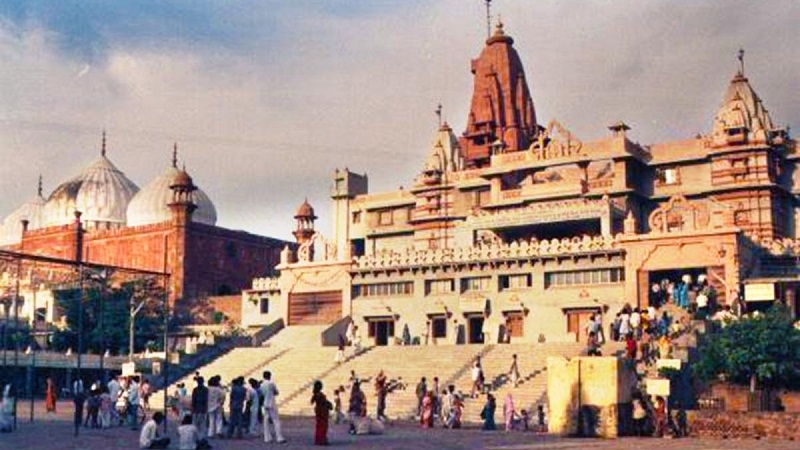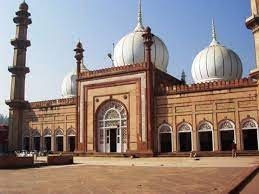Krishna janmasthan idols lay buried in Agra’s Jama Masjid: PIL

Mathura, Apr 17: While a petition regarding removal of Shahi Idgah Mosque adjacent to the Sri Krishna Janmasthan in Mathura is pending in the Mathura court, another PIL regarding the idols of Sri Krishna Janmasthan buried under the Jahanara Masjid popularly known as Jama Masjid in Agra is filed in the court.
Advocate Shailendra Singh filed this PIL based on an assertion that Mughal Ruler Aurangazeb razed the birthplace temple of Sri Krishna at Mathura and took the idols of the Lord to Agra to be buried under the Jama Masjid.
Advocate Singh had filed the PIL on behalf of five petitioners from Lucknow, requested the court to grant permission for ground radiology test by the Archaeological Survey of India (ASI) at the Jama Masjid in Agra to ascertain the facts about burial of Sri Krishna’s idol there.
 The PIL mentioned, quoting from “Anecdotes of Aurangzeb and Historical Essays” By Sir Jadunath Sarkar and published by M C Sarkar & Sons, 902-A, Harrison Road, Calcutta 1917, Pages 11-12, “The grandest shrine of Mathura, Kesav Rai’s temple, built at a cost of 33 lakh of rupees by the Bundela Rajah Birsingh Dev, was razed to the ground in January 1670, and a mosque built on its site. The idols were brought to Agra and buried under the steps of Jahanara’s mosque that they might be constantly trodden on by the Muslims going in to pray.”
The PIL mentioned, quoting from “Anecdotes of Aurangzeb and Historical Essays” By Sir Jadunath Sarkar and published by M C Sarkar & Sons, 902-A, Harrison Road, Calcutta 1917, Pages 11-12, “The grandest shrine of Mathura, Kesav Rai’s temple, built at a cost of 33 lakh of rupees by the Bundela Rajah Birsingh Dev, was razed to the ground in January 1670, and a mosque built on its site. The idols were brought to Agra and buried under the steps of Jahanara’s mosque that they might be constantly trodden on by the Muslims going in to pray.”
Meanwhile, the district court in Mathura on February 6, admitted a petition to remove the Shahi Idgah Mosque from the Krishna Janmasthan Mandir in Mathura.
It is stated that the Mosque was built by Mughal Ruler Aurangzeb after he razed the Krishna Janmasthan Mandir at Mathura. The court has issued notices to all the parties concerned including the Shahi Idgah Mosque Management Committee, to submit their views.
The PIL claiming that the idols of the Krishna Janmasthan temple in Mathura have been lying buried beneath Jama Masjid, was filed a week after the Varanasi district court granted permission for an archaeological survey of the Kashi Vishwanath Temple-Gyanvapi Mosque complex.